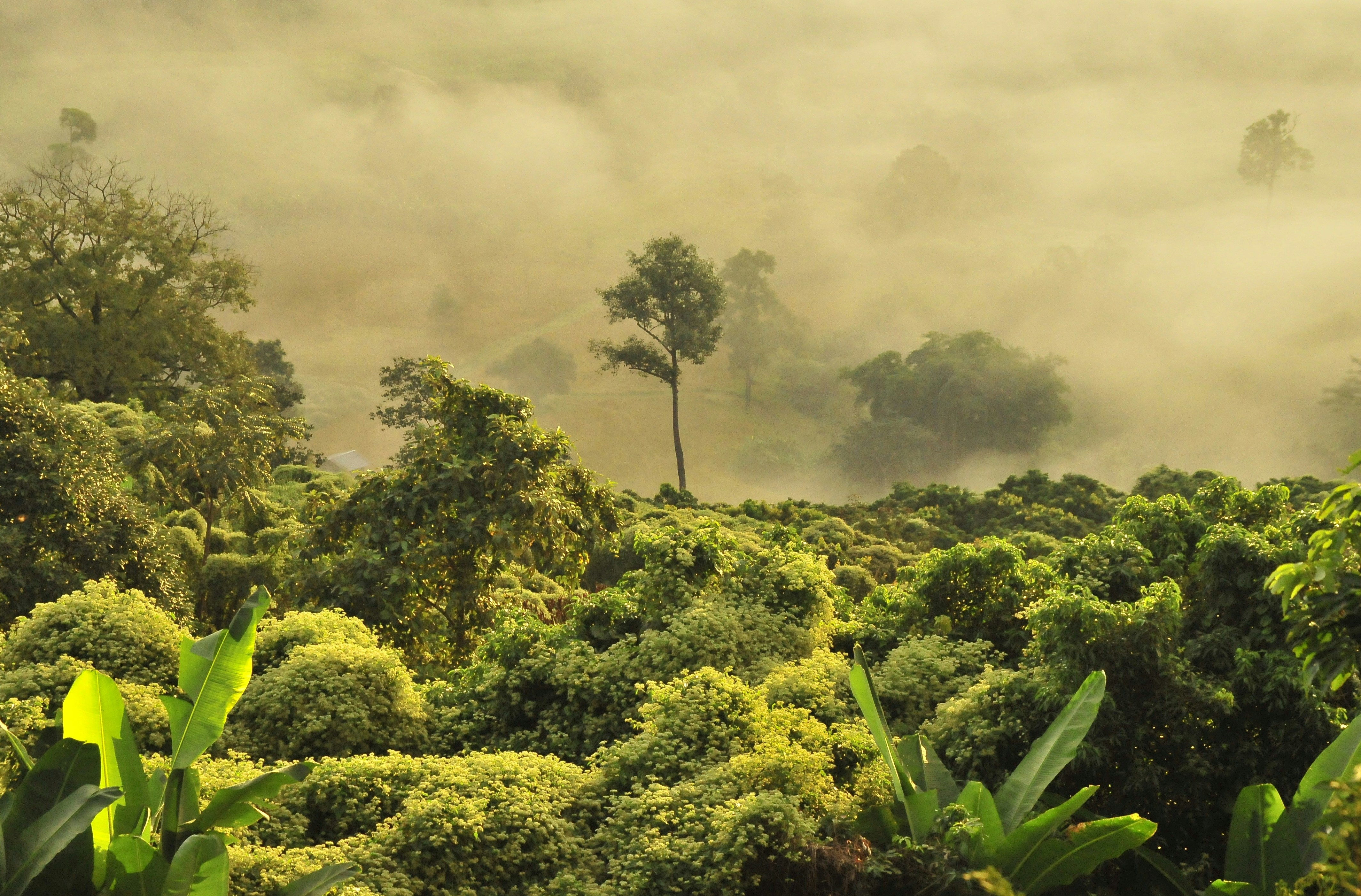News release
From:
James Cook University Distinguished Professor Bill Laurance was a co-author of the new paper. He said understanding the capacity of forests to adapt to climate change is of pivotal importance.
“Climate change is a major threat to wild species and may be even more important in the tropics than many other ecosystems because tropical species are adapted for relatively stable temperatures, compared to many other places,” said Professor Laurance.
Scientists from around the globe analysed data from 415 long-term forest sites that had been monitored from 1980 to 2021. The dataset included information on the identity, size, recruitment and mortality of more than a quarter of a million individual trees across the tropics from Mexico to southern Brazil.
“We would expect to see certain changes in trees as the world heats up. For instance, having smaller leaves dissipates heat more effectively and helps to prevent water loss.
“Plants with thicker and tougher leaves can also better resist water loss and high wood density can increase a plant’s capacity to survive droughts,” said Professor Laurance.
But he said the scientists found that tropical plants in the Americas exhibited just 8% of the changes needed to closely adapt to climate-change at their specific location.
“The slightly better news is that when we looked at ‘baby’ plants like seedlings and saplings, we found they exhibited 21% of the changes needed to adapt to local climate change.
“This is marginally better and suggests that the younger plant stages can change somewhat more rapidly in their traits than do larger, mature plants,” said Professor Laurance.
“There’s no reason to think Australia’s tropical rainforests will be affected differently. Climate change is now happening so quickly that a lot of species are being left in the dust, so to speak.”
“Simply put, a lot of tropical plant species are seemingly not adapting to rapid climate change,” said Professor Laurance.
“It’s a scary thing to discover.”



 Australia; QLD; SA
Australia; QLD; SA



